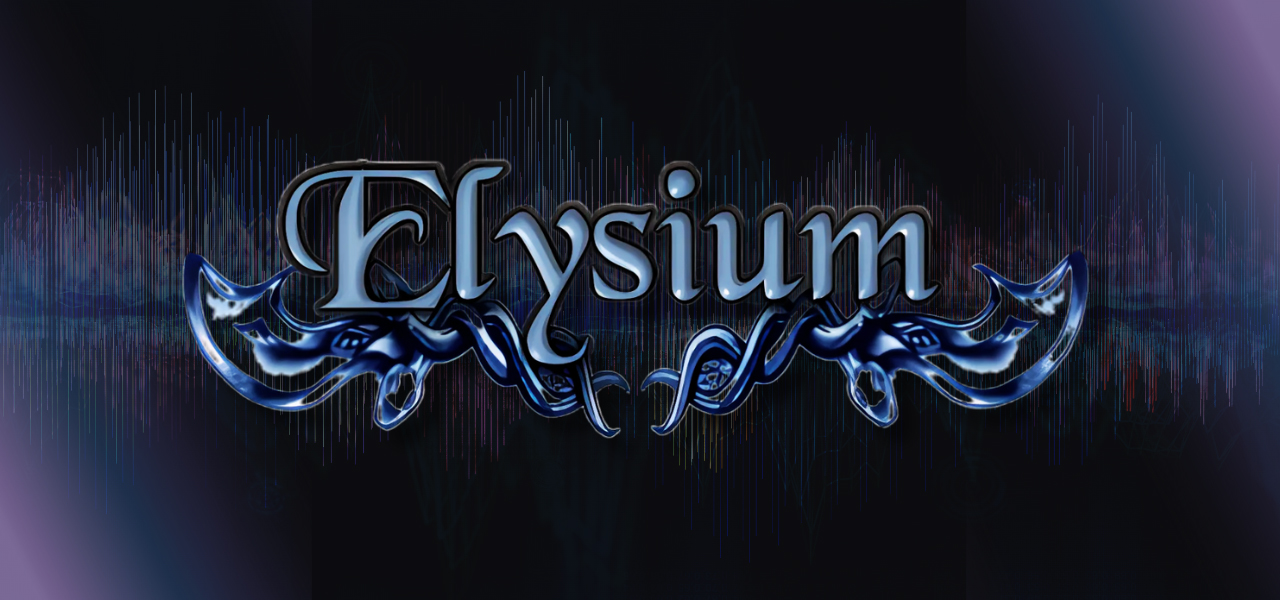Elysium RPG: From Player to Ruler — Your Story in the MUD Universe
Few MUD projects have survived for decades without getting stuck in the past, yet still managing to keep a vibrant atmosphere and rich mechanics. Elysium RPG, launched in the late 1990s, is one of these rare gems. It doesn’t just run — it lives. Generations of players come and go, new features and systems appear, yet the core remains the same: freedom, depth, and the feeling of real life in a fantasy world.
This is a living medieval fantasy world, limited only by your skills and ingenuity. Here, your character is not a visitor but a co-creator of the world — a fully developed personality with their own story, ambitions, and influence.
This review explores how the world of Elysium works, what opportunities await players, and why, after so many years, it still holds a strong place in the world of text-based role-playing games.

Gameplay & Key Mechanics
Gameplay in Elysium RPG is built around freedom, consequences, and meaningful interaction. There are no fixed classes or pre-set paths—every player chooses their own role, destiny, and the way they will shape the world.
First Steps and a Travel Guide
Your journey in Elysium RPG begins in the Dream World—a tutorial area where you learn the basic commands, grasp the core principles of the game, and even recreate your character if you change your mind about their race or description.
Once you step into the main world, you’ll meet your guide. They can:
- provide useful information about the world;
- escort you to the Academy—your city’s training center.
The Academy is the best starting point for newcomers. Here you can:
- meet key NPCs;
- complete simple quests and earn rewards;
- learn basic skills that will serve you well later.
If you lose your guide or decide to do the tutorial later, just type the command “guide”—and they’ll reappear.
The System of Classes and Development in the Game
Elysium RPG has no fixed classes—you build your character from scratch by choosing up to six primary skills from dozens available. These define your playstyle. Alongside them are general skills, which have no learning limits (e.g., cooking, tailoring). Certain combinations of primary skills unlock an advanced skill that grants unique abilities.
Character progression works in two main ways:
- Lessons—special experience points earned through activity and quest completion. You can spend them to learn new skills and abilities via a guild, another player, or an NPC trainer.
- Mastery—certain abilities grow stronger with use. The more often you use them, the more powerful they become.
The Political System
Nine cities in the game world are player-governed, each led by an emperor with ministers overseeing specific domains. Players can run in elections, stage coups, hold key offices, and influence the army, navy, laws, and taxes. Political intrigue and diplomacy are integral to the gameplay, open to anyone willing to shoulder the responsibility.
Relationships and Reputation
Every action you take shapes your reputation: cities—and even the demons of Hades—remember it all. Emperors may grant you their patronage—or condemn you. Friendship can earn you lucrative deals, while enmity may bring boycotts and open hostility from the populace.
Reputation is a tangible force that shapes your life in Elysium.
Combat System
Combat in Elysium RPG isn’t just trading blows—it’s a tactical duel where every second counts. Every action depends on balance: after using an attack or ability, you need recovery time, making fights more deliberate and strategic. Battles take into account health, armor, mana—along with bleeding, curses, and other special effects.
Death and Resurrection
In Elysium RPG, death isn’t the end—it’s the start of a new chapter. After dying, your character lingers for a while as a soul, unable to interact with the physical world. The resurrection process feels like a scene from a blockbuster: your fate is decided by a divine trial shaped by your deeds—the peaceful are revived by one god, while killers face another, far harsher deity.
Every resurrection comes at a price: you lose Lessons and Glory, with an extra penalty for killing weaker players. Once restored to a new body, you return to the world on the Sacred Island to continue your journey.
Economics and Crafting
The economy is driven largely by players, though traditional shops still play an important role. Players gather resources, craft items—from food and clothing to weapons and potions—and run their own shops. Cities have varying tax rates and demand levels, directly affecting profit. Intercity trade, goods delivery, and inventory management make the economy a major gameplay system in its own right.
Religious Orders
The gods of Elysium RPG are real powers—each of the six deities has their own order and a distinct stance toward followers. Players can join one of these orders, become priests, and gain divine abilities. Faith in Elysium is not just a source of power—it’s a path that can lead to the favor of one god or the enmity of another.
Community and Accessibility
Elysium is one of the few text-based games where accessibility isn’t just promised—it simply works. The project, born as a hobby effort, was created at a time when few had even heard of screen readers. Yet from the very start, the game proved highly accessible to visually impaired players—not by design, but by nature.
From the outset, the developers chose to forgo ASCII maps. Instead, locations are richly described and the world’s layout is clearly structured. The sailing system originally used ASCII maps, but years ago the developers added an alternative that describes navigation entirely in words. They also added the option to hire NPC captains to reach another port city without using a map at all. Another feature is the “directions” command. Using it reveals the route to key locations without consulting a map or even knowing the world’s layout.
Players—including blind players—actively contribute to the game’s development. When a blind player reported that NPC chatter in cities made it harder to read text with a screen reader, the developer implemented a system that gradually mutes non-essential dialogue. The system is on by default, yet still lets you choose to always hear—or completely ignore—NPC chatter.
For the developer, accessibility is no empty slogan. They welcome suggestions, act on feedback, and add new features or refine existing ones. Their only rule: never simplify or water down the game. The world must stay immersive, rich—and open to all.
Overall Impression of the Elysium RPG
Elysium RPG isn’t just a MUD—it’s a living world you’ll want to explore and return to again and again. There are no rigid templates, linear paths, or artificial limits—the game lets you be yourself and play your own part in the shared story.
What impresses most is the atmosphere. The world of Elysium feels complete and believable, as if it truly exists beyond the player. Everything follows the internal logic of this world—from simple quests to societal roles. The developers aim to keep the world lively and realistic—storylines are crafted to feel meaningful to each player, not just “play through and forget.”
It’s great to see cooperation actively encouraged. Cities are run by players—with emperors, ministers, artisans, and merchants. The game’s structure fosters interaction, and even if power in a city is concentrated in one set of hands, the mechanics let players gather, negotiate, and build their own community. This makes every in-game day genuinely unpredictable.
The combat system also stands out. It was once strictly PvP-focused but has since been adapted for play against NPCs as well. This balance lets you engage in conflicts when you choose, without forcing constant participation. Overall, the game encourages more peaceful, thoughtful interactions—while still leaving room for conflict when it makes sense.
Elysium RPG leaves you with the feeling of a true adventure. It’s one of those rare games where you don’t just want to level up—you want to truly live in a world where every action matters.
